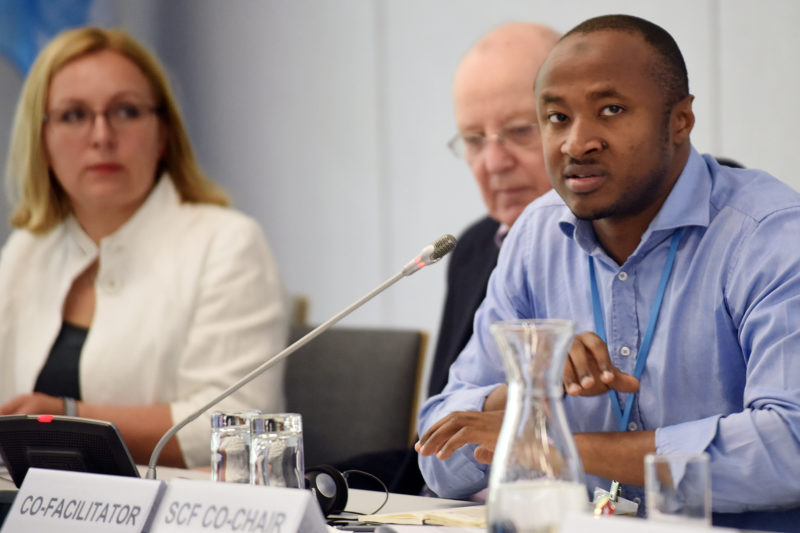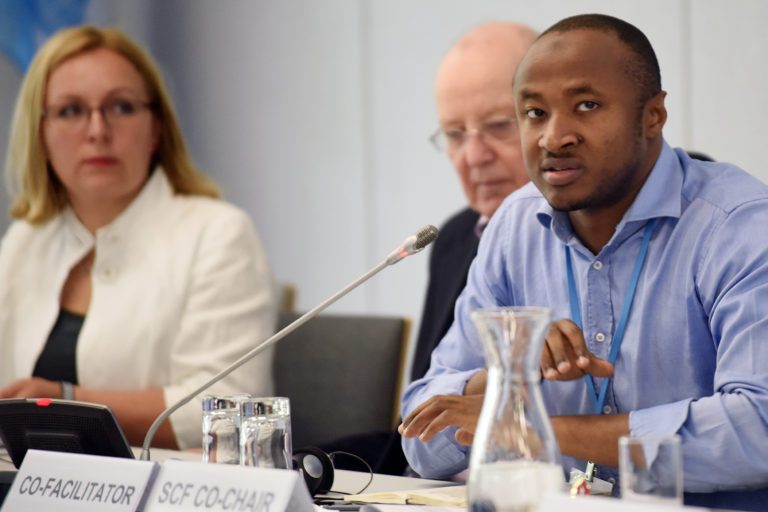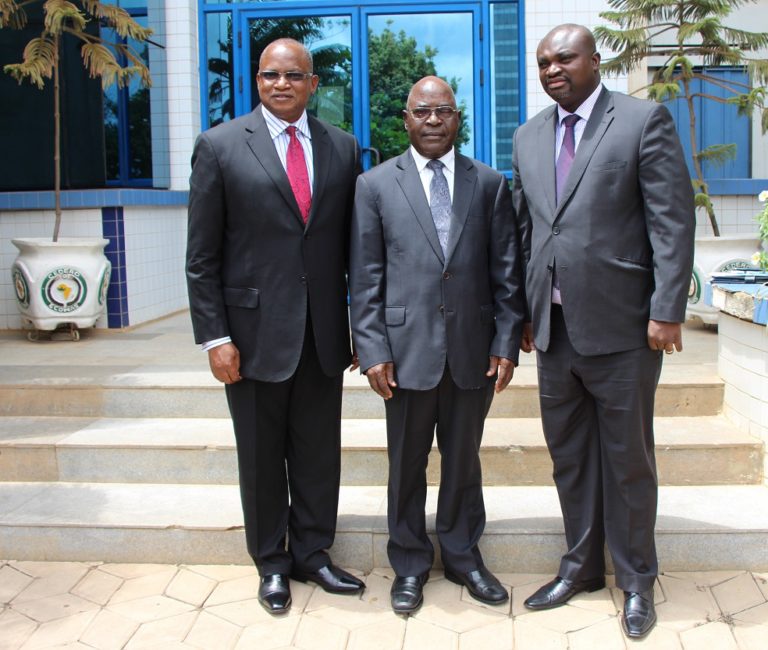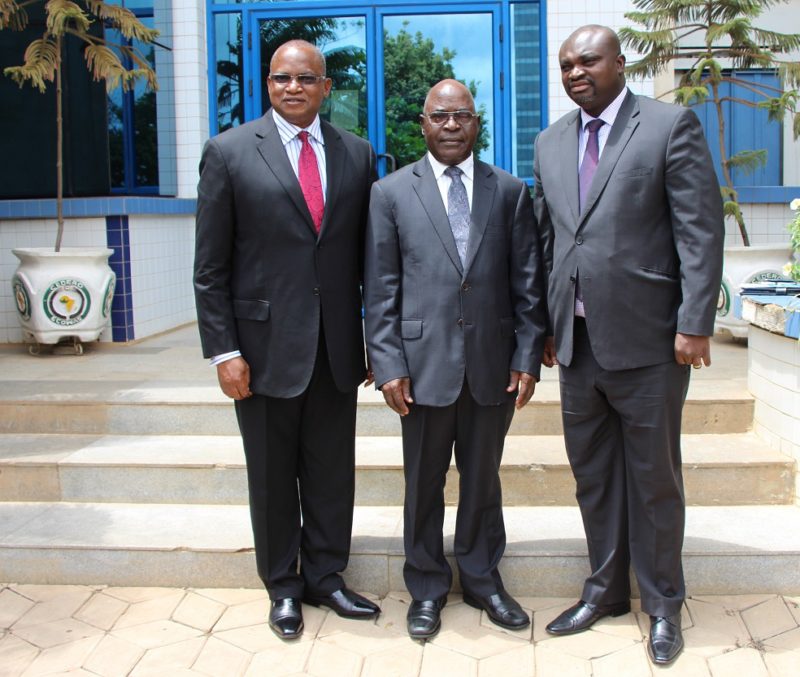Over 100 international civil society groups on Thursday, May 18, 2017 in Bonn, Germany launched a statement in solidarity with their African counterparts who are concerned about the role of France and the European Commission in undermining the Africa Renewable Energy Initiative (AREI).

The statement asserts that France and the European Commission abused their position as donors to rush through the endorsement of 19 projects which were not subject to the initiative’s own evaluation criteria or social, environmental, and gender safeguards – against the wishes of several Africans on the AREI Board. Neither France nor the European Commission is formally a Board Member.
France and other developed country donors have pledged to provide funds to support “new and additional” renewable energy capacity, but African and international civil society groups say these promises are being broken as some already existing projects are being rebranded as AREI projects.
The first director of the Initiative’s “Independent Delivery Unit” resigned in the aftermath of the Board Meeting, and on the sidelines of the climate change negotiations in Bonn, Ségolène Royal announced the nomination of a new head, Mr. Seyni Nafo of Mali.
Many in the civil society community are familiar with Mr. Nafo, have worked productively with him in the past, and look forward to engaging with him in his new role. They stress, however, that he must be set up for success by ensuring the AREI does not become donor-driven, but instead sticks to its principles of African ownership and transparent, inclusive governance.
“Decades of experience with development and climate finance show us that letting rich countries make decisions for people living in developing countries is a surefire path to failure. The AREI is an exciting and innovative initiative exactly because it is African-owned and African-driven. France and the EU are to be commended for contributing to the AREI, but only if their contributions are actually new and with additional money and come with no strings attached. By trying to use their status as donors to push through pet projects and take control away from Africans, they are doing far more harm than good. The AREI is too important for us to allow rich countries to get their way at the expense of African people once again,” said Brandon Wu of ActionAid USA.
“Support for renewable energy in Africa was a major commitment made at the Paris Climate Summit, but now it seems that some in the French government and European Commission think this makes it okay to support projects without assessment against stringent social and environmental criteria. European governments need to ensure space for African leadership on renewable energy,” said Susann Scherbarth of Friends of the Earth Europe.
“As an African I am deeply worried how some African board members helped push through projects proposed by the Europeans, despite objections from other African board members. The Europeans must own up to their role in this mess and must stop trying to deflect the blame. They must put their money where their mouths are and genuinely support the initiative’s African ownership. Looking forward, donor countries need to back off and both African board members and the new Head need to ensure AREI’s original vision and integrity is restored,” said Mohamed Adow of Christian Aid.
“Donor countries cannot bypass the AREI’s safeguards and screening process and simply use it to rubberstamp their pre-existing projects. Doing so invalidates a crucial goal of the Initiative – to break free from old and outdated development models, and instead give African people control of their future.
“The AREI is meant to do much more than just generate renewable energy, it’s about making sure that the 630 million Africans that don’t currently have access to electricity are able to reap the benefits that clean, reliable energy can provide. We urge the EC and others to help it succeed,” said Annaka Peterson of Oxfam International.
“The AREI has become so popular because, at its core, it is about putting the needs of people and the planet first. This vital, precedent-setting initiative must be protected by ensuring that civil society players are present. AREI needs to remain people-centred in order to ensure a just energy transformation, and that requires strong criteria to avoid any corporate malfeasance in the operationalisation of its projects,” said Lidy Nacpil of the Asian Peoples Movement on Debt & Development.
“In recent years, we have seen some inspiring examples of South-South cooperation on climate and energy, with both China and India emerging as key players in the renewables field. By trying to claim both non-African seats on the AREI Board, France and the European Commission are stunting the potential for further cooperation between Africa and the rest of the developing world,” said said Sanjay Vashist of Climate Action Network – South Asia.
The AREI was launched in 2015 in Paris during COP21 as an African-led initiative with the goal of providing at least 10 GW of new renewable energy to Africa’s peoples by 2020, and put the continent on course to add at least another 300 GW and achieve universal access to energy for all Africans by 2030.
It was supported by $10 billion in pledges for 2015-2020 by developed countries in Paris, and has been hailed as a groundbreaking effort to bring clean, affordable, and reliable energy to millions of people in a democratic, human rights-focused approach.











